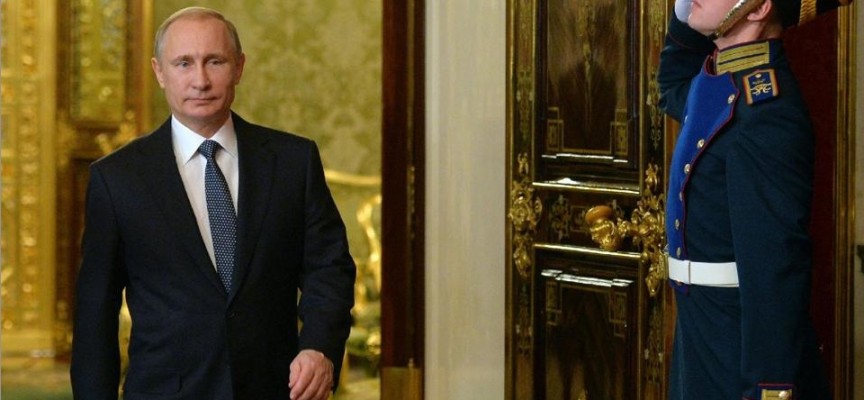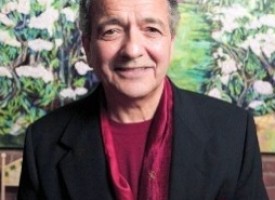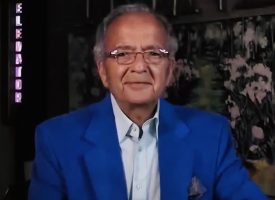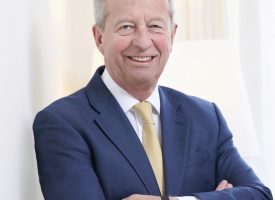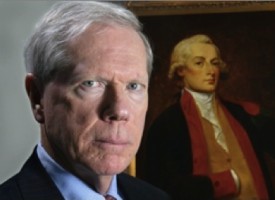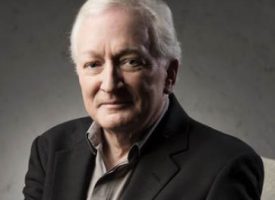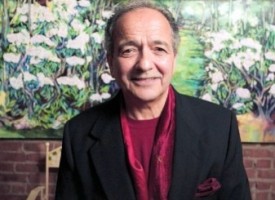PUTIN SURE OF RUSSIAN RECOVERY AT NEWS CONFERENCE
The St. Petersburg Times: By Ivan Nechepurenko
Beaming confidence and exuding a readiness to deflect blame, President Vladimir Putin refrained from seizing the opportunity to announce any sweeping policy reforms with regard to Russia’s economic crisis during his annual news conference on Dec. 18.
Hundreds of journalists from across Russia and around the globe attended the event, many of whom were relatively assertive with their questions this year.
In the past, the atmosphere has often been sympathetic, spurring speculation that questions had been selected in advance. But this year’s reporters tended to veer between the neutral and the negative, with Ukraine agency UNIAN’s Roman Tsymbalyuk brazenly asking: “How many Russian servicemen and units of equipment have you sent there, and how many of them have been killed in Ukraine? What would you as the commander-in-chief say to the families of the Russian servicemen and officers killed in Ukraine?”
During the event, Putin reiterated his view that the current economic crisis — which has seen the ruble plummet over 45 percent against the U.S. dollar since January and is expected to spur inflation to 10 percent by the year’s end — is only temporary and will end “inevitably” within two years maximum.
With equal aplomb, Putin made clear his resolve not to cower to the West, echoing his usual mantra that NATO and the U.S. provoked Russia, first by expanding eastward and then by staging a coup in Kiev in February, overthrowing Ukraine’s former regime to advance Western interests.
Don’t Blame Me for Ruble’s Plight
Economy-related issues and the ruble crisis took center stage throughout the conference. Putin essentially defended his own performance, saying the government would adopt measures that had already been proven effective during the 2008 financial crisis.
He reiterated on several occasions during the event that the economy is bound to bounce back, and that the current state of affairs will be behind us soon, with two years being the worst case scenario.
But every cloud has its silver lining. The plummeting price of oil has given Russia impetus to diversify its economy, something that it hasn’t managed to do for the past two decades owing to the fact that oil extraction has traditionally proven more lucrative than other business endeavors, Putin said.
Putin asserted that Russia’s financial recovery is linked to the global economy, which he is confident will surge in the coming years, in turn creating an increased demand for energy resources.
He praised the government’s handling of the crisis thus far, admitting that some measures — perhaps with reference to the Central Bank’s interest rate hike on Monday — could have been adopted more quickly. He also said the government must do a better job tackling spiraling inflation, especially in terms of gasoline and food.
It’s All the West’s Fault
With regard to foreign affairs, Putin’s message was consistently anti-Western. He accused the West of attempting to contain Russia and crush its national interests.
“After the fall of the Berlin Wall and the breakup of the Soviet Union, Russia opened itself to our partners. What did we see? Direct and fully fledged support for terrorism in the North Caucasus. They directly supported terrorism, you understand? Is that what partners usually do? I won’t go into details on that, but this is an established fact. And everyone knows it,” he said, when asked about the economic consequences of Crimea.
More recently, “unprecedented and clearly orchestrated attempts were made [by Western journalists] to discredit our efforts to organize and host the Olympics,” he said.
He compared Russia’s aspiration of preserving its nationhood to a bear defending his turf. “You see, if we continue the analogy, sometimes I think that maybe it would be best if our bear just sat still. Maybe he should stop chasing pigs and boars around the taiga and start picking berries and eating honey. Maybe then he will be left alone. But no, he won’t be! Because someone will always try to chain him up. As soon as he’s chained they will tear out his teeth and claws,” he said.
In essence, Russia was forced to adopt a more assertive stance in the international arena, and was accordingly driven to revamp its military forces.
The situation in Ukraine was discussed at length with Putin largely dodging Tsymbalyuk’s question, which assumed the presence of Russian troops and weapons in Ukraine’s turbulent east. He expressed his desire to see peace in Ukraine once again. “I hope that by engaging in dialogue — and we are ready to assume the role of intermediaries in this respect — we will succeed in establishing a direct political dialogue, and by employing such methods and political instruments we will reach a settlement and restore a single political space,” he said. He expressed optimism that Ukrainian President Petro Poroshenko wants peace as well, noting that Poroshenko isn’t the only one making decisions in Kiev. …
TO READ MORE: http://sptimes.ru/index_bp.php?action_id=2&story_id=41510§ion=12

